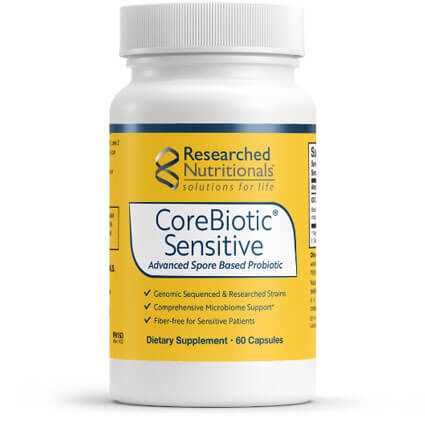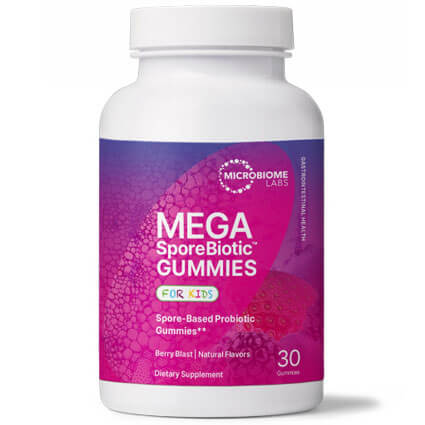Dr. Kelly here. Probiotics, those little buggers!!
How do you choose the right one for you!
Let’s start with why should I take a probiotic?
Your gut is home to trillions of microorganisms, known as the gut microbiome.
Most of these microbes are beneficial and essential to your overall health, others can be harmful if allowed to overgrow.
(We can talk about killing off the harmful opportunistic microbes another time, but know those need to be killed off in order to get the maximum benefit of your probiotic)
Taking healthy microbes known as probiotics help:
- Support mental well-being and mood
- Aid in healthy weight management
- Strengthen immune response
- Improve skin health
- Support Women health issues
Quality Matters
Not all probiotics are created equal.
Choose products from reputable companies that perform third-party testing to ensure quality and potency.
Brands available through Fullscript often meet these standards and include QR codes on their packaging, allowing you to trace the specific batch and verify testing results.
Look at CFUs?
When evaluating a probiotic supplement, one important factor to consider is the CFU count, which stands for Colony Forming Units.
This number indicates the quantity of viable bacteria in each serving. Higher CFU counts generally provide greater benefit—provided the strains are appropriate and well-researched.
Diversity Is Key
A healthy gut microbiome requires a wide variety of bacterial strains—think of it like needing all 26 letters of the alphabet. If you’re only supporting a few strains (like A, B, and C), you’re more vulnerable to imbalances and opportunistic bacteria.
Two of the most well-researched probiotic families include:
- Bifidobacteria
- Lactobacillus

I would say if you look at the bottle you have at home, it contains one of those.
Each strain supports different functions within the body. For example:
- Akkermansia – supports metabolic health and weight management
- Bacillus species – help regulate immune function
- Lactobacillus rhamnosus – Female urinary tract support

Common and beneficial strains include:
- Bacillus coagulans
- Bacillus subtilis
- Bacillus clausii
- Bifidobacterium bifidum
- Lactobacillus plantarum
- Lactobacillus fermentum
- Lactobacillus reuteri
- Lactobacillus acidophilus
- Lactobacillus gasseri
- Lactobacillus rhamnosus -urinary/vaginal support
- Lactobacillus sporogenes
- Saccharomyces boulardii – a beneficial yeast (different from Candida)
What about Spore-Forming Probiotics?

You might see the verbiage soil-based probiotics, which are a soil-based spore forming probiotic.
Examples are Saccharomyces boulardii, Bacillus clausii, Bacillus coagulans and Bacillus subtilis.

Choosing and Using Probiotics Effectively
- Read the label: Always check which strains are included in the product.
- Rotate strains: Using a variety of strains helps support a more diverse microbiome.
- Use yeast-based probiotics with antibiotics: If you are taking an antibiotic, it’s advisable to take a yeast-based probiotic like Saccharomyces boulardii concurrently. Antibiotics kill both harmful and beneficial bacteria. After completing the antibiotic, switch back to a standard probiotic formula.

Probiotics for kids are a little trickier – they need to TASTE GOOD!


I’m not as crazy about the brand Smarty Pants, but kids seem to love them & a little extra boost of probiotics it better than none. They can take probiotics on the weekends.

Don’t Forget Food Sources
Incorporating fermented foods into your diet can naturally support gut health. Good choices include:
- Kombucha
- Tempeh
- Natto
- Miso
Note: Most commercial yogurts are not reliable sources of probiotics due to high sugar content and poor survivability of bacterial strains by the time of consumption.
Do I need to take my probiotic with food?
No, empty stomach is best. But I take my supplements with food.
Do I need to refrigerator my probiotic?? Not necessarily.
It would be on the label if it was needed. Read the label.
Some maybe more sensitive and need to be refrigerated. I would say most high quality probiotics that are third party tested do not need to be refrigerated.
Choosing the Right Probiotic for You
With so many options available, the best probiotic for you depends on your individual health needs, any recent antibiotic use, and the diversity of strains.
To determine the most appropriate probiotic for your current health goals, you can reach out by responding to this email or text us if you want more info on what supplements are best for you. Even better, ask me about it at your next visit if there is a certain supplement you have a question about.
Yours in Health Naturally,
Dr. Kelly
